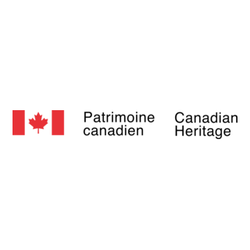
Closed
Cultural Infrastructure Development Program
Last Update: October 27, 2025
QC, Canada
Supports development and improvement of public cultural infrastructure
Grant and Funding
At a glance
Funding available
Financing goals
Reduce the ecological footprint
Eligible Funding
- Maximum amount : 20,000,000 $
- Minimum amount : 100,000 $
- Up to 35% of project cost
Timeline
- Receipt of requests is now closed
Eligible candidates
Eligible Industries
- Information and cultural industries
- Arts, entertainment and recreation
- Public administration
Location
- Quebec
Legal structures
- All legal structures
Annual revenue
- All revenue ranges
Organisation size
- All organization sizes
Audience
- Indigenous Peoples
- Rural or Northern Residents
- Canadians
Overview
The Cultural Infrastructure Development Program provided up to $20 million in government funding for projects aimed at improving access to and the quality of cultural infrastructure in Quebec. Eligible activities included construction, renovation, restoration, and the acquisition of equipment for publicly accessible, non-commercial cultural facilities.
Activities funded
- Construction, renovation, transformation, expansion, or redevelopment of cultural infrastructures such as libraries, museums, archives, and cultural or Indigenous community centers.
- Requalification or restoration of heritage buildings for cultural use.
- Relocation or acquisition of buildings for the establishment of cultural facilities.
- Implementation of specialized equipment and installations essential for cultural infrastructure operations.
- Projects aimed at enhancing universal accessibility, sustainability certification, or cultural infrastructure resilience to climate change.
Examples of admissible projects:
$ 20,000
Launching a training program for accessible employment in manufacturing
$ 24,500
Upgrading IT infrastructure for a youth community learning centre
$ 25,000
Establishing a local food processing hub for cooperative members
$ 34,000
Implementation of energy-efficient equipment in urban bakery operations
$ 15,800
Developing an online booking and sales platform for a local tour company
$ 24,000
Automating order processing with new AI inventory management system
Eligibility
- The applicant must be a municipal body governed by the relevant Quebec laws, or a recognized First Nations or Inuit government with a governance structure.
- The applicant must hold ownership, or have a formal promise to acquire ownership, of the property where the cultural infrastructure project will take place.
- If a non-profit organization operates the cultural infrastructure, a signed lease or occupancy agreement with the owner must be in place and meet minimum duration requirements, as validated by the Ministry.
- The cultural infrastructure project must be open to the public, locally oriented, and non-commercial in nature.
- The applicant must have fulfilled any previous commitments made to the Ministry in relation to prior financial assistance, if applicable.
Who is eligible?
- Municipal organizations governed by the Act respecting cities and towns or the Municipal Code of Québec
- First Nations or Inuit governments established under federal or provincial law with a governance structure, including band councils
Who is not eligible
- State-owned enterprises (crown corporations)
- For-profit organizations (private sector businesses)
- Non-profit organizations not specifically designated in the eligible applicants section
- Private entities operating cultural infrastructure for profit
- Organizations whose infrastructure is located outside of Quebec
Eligible expenses
- Costs for construction, renovation, transformation, expansion, redevelopment, or restoration of eligible cultural infrastructure.
- Reconstruction costs, including demolition of obsolete existing infrastructure.
- Restoration of characteristic elements in heritage cultural buildings, subject to required authorizations.
- Archaeological work (monitoring, inventory, excavations) related to construction projects, with required permits.
- Acquisition of a building for the development of eligible cultural infrastructure (up to its official or appraised value).
- Acquisition, replacement, and installation of specialized equipment or furniture essential to the project and directly related to its mission (excluding items for resale or non-essential furniture).
- Acquisition and installation of equipment or furniture to improve universal accessibility.
- Certification of sustainable buildings (registration and certification fees, if applicable).
- Organization of an architectural competition (where required or applicable).
- Interventions recommended to address greenhouse gas emissions and climate resilience.
- Surveying costs for project planning or construction.
- Site quality control costs, including laboratory fees.
- Costs for installation of fire protection and suppression systems.
- Costs associated with integrating artwork pursuant to government public art policies.
- Manufacturing and installation of identification plaques.
- Professional fees for design, engineering, construction supervision, or preparatory studies required by the program (if contracted per government rules).
- Environmental evaluation costs (greenhouse gas and climate resilience assessments) when conducted by qualified third parties.
- Costs related to Indigenous or environmental consultations (when required).
- Net taxes related to admissible direct and incidental costs (excluding any recoverable portion).
Eligible geographic areas
- Province of Quebec
Selection criteria
- Relevance of the project, including integration into its environment, cultural benefits, and alignment with identified needs.
- Improvement to quality of life resulting from the project.
- Consideration of sustainable development principles.
- Benefits for vulnerable populations.
- Feasibility, including the applicant's delivery capacity, financial planning, budget coherence, and operational viability.
How to apply
- Step 1: Preliminary VerificationContact the regional office of the Ministère de la Culture et des Communications for a preliminary check of your project’s eligibility before application submission.
- Step 2: Complete the Application FormFill out the electronic application form available on the di@pason online service.
- Step 3: Gather Required DocumentsCollect all mandatory documents, including:
- A municipal resolution or equivalent authority authorization.
- The complete preproject document as per the Guide d’élaboration d’un avant-projet, with required annexes and supporting documents.
- Project characteristics and performance indicators form required by Canada.
- List of equipment and furniture, if applicable.
- Federal Indigenous consultation and environmental assessment form.
- Location file in KML format.
- Proof of property rights or formal commitment to acquire such rights.
- Occupancy agreements or leases, including programming management agreement for presenters, if applicable.
- Any studies already produced.
- Additional specific documents depending on project type (e.g., Technical Audit Form, heritage study, financial statements for NPO-managed infrastructures, etc.).
- Step 4: Submit the ApplicationTransmit the completed electronic form and all required documents through the di@pason online service before the current call for projects deadline (refer to the program calendar on the Ministry's website).
- Step 5: Consent and DeclarationsAgree that information provided in the application and related documents may be shared with other ministries or organizations for administrative compliance or expert consultation during analysis.
- Step 6: Application ReviewThe Ministry reviews the application for completeness and eligibility and may consult external experts as needed.
- Only complete and accurate submissions are evaluated.
- Step 7: Project Recommendation and ApprovalThe Ministry makes a recommendation based on the analysis; final approval is provided by Canada (some projects may also require approval by the Treasury Board of Canada).
- Step 8: Announcement and Funding AgreementReceive the official announcement letter signed by the Minister.
- Sign the financial assistance agreement outlining recipient obligations and payment terms.
- Step 9: Submit Required Project Documents Before ConstructionSubmit required construction program documents, budget updates, and other approvals for Ministry validation before launching any tender or construction activities.
- Step 10: Project Execution and MonitoringFollow contractual and reporting requirements, submit periodic progress reports, and comply with all agreement obligations.
- Step 11: Final Report and Payment RequestSubmit the final report and claim for reimbursement after project completion, including proof of completion, financial documentation, visual documentation, procurement details, and any other material as required by the Ministry.
Additional information
- The program is now closed; the details provided are for reference only and may not be applicable for new applications.
- For projects with eligible costs of $10 million or more, independent evaluations on greenhouse gas emissions and climate resilience must be submitted before final approval.
- The list of requirements for project visibility and acknowledgment can be found in the annex of the funding agreement.
- A full program evaluation was submitted to Quebec's Treasury Board Secretariat by October 31, 2022.
Apply to this program
Frequently Asked Questions about the Cultural Infrastructure Development Program Program
Here are answers to the most common questions about the Cultural Infrastructure Development Program. This section explains what the program is, how much funding is available, eligibility requirements, application deadlines, and other important details to help you determine if this grant is right for your business.
What is the Cultural Infrastructure Development Program?
How much funding can be received?
Who is eligible for the Cultural Infrastructure Development Program program?
What expenses are eligible under Cultural Infrastructure Development Program?
Where is the Cultural Infrastructure Development Program available?
Is the Cultural Infrastructure Development Program a grant, loan, or tax credit?
Who are the financial supporters of the Cultural Infrastructure Development Program?
Apply to this program
More programs like this

Grant and FundingOpen
ÉcoPerformance — Recommissioning of building mechanical systems
Gouvernement du QuébecFunding to optimize the operation of building mechanical systems

Grant and FundingOpening Soon
Flood Resilience and Adaptation Program (PRAFI) - Resilient Development Component
Ministry of Municipal Affairs and HousingSupports municipal flood resilience and adaptation infrastructure projects

Grant and FundingOpening Soon
Flood Resilience and Adaptation Program - Community Resilience and Relocation Component
Ministry of Municipal Affairs and HousingSupports municipal relocation and resilience projects in flood-risk areas

Grant and FundingOpen
Additional support for the circulation of shows
Société de développement des entreprises culturelles (SODEC)Financial support for touring Quebec music and comedy shows

Grant and FundingClosed
Call for projects to combat homophobia and transphobia
Gouvernement du QuébecFunds Quebec organizations’ projects combating homophobia and transphobia

Grant and FundingClosed
Accelerating the local climate transition - Component 1
Environnement Québec (MELCC)Supports municipal climate action planning and implementation in Quebec

Tax CreditsWage Subsidies And InternsOpen
Financial assistance for the hiring of a person to integrate a job on a long-term basis
Gouvernement du QuébecSupports employers hiring candidates facing employment barriers

Grant and FundingOpen
Charge+
Propulsion QuebecSupports installation of electric vehicle charging infrastructure in Quebec

Partnering and CollaborationGrant and FundingExpert AdviceSuspended
Financial support to assess your energy use Hydro Quebec
Hydro-QuébecUp to $50,000 for energy performance analysis and optimization

Grant and FundingOpen
Canada Cultural Investment Fund - Endowment Incentives
Canadian HeritageSupports arts organizations by matching private donations to endowment funds
Sign up to our platform to access the Cultural Infrastructure Development Program information sheet for free
Get access to 4,000+ programs, practical guides, personalized alerts, and an AI assistant to support your grant applications.